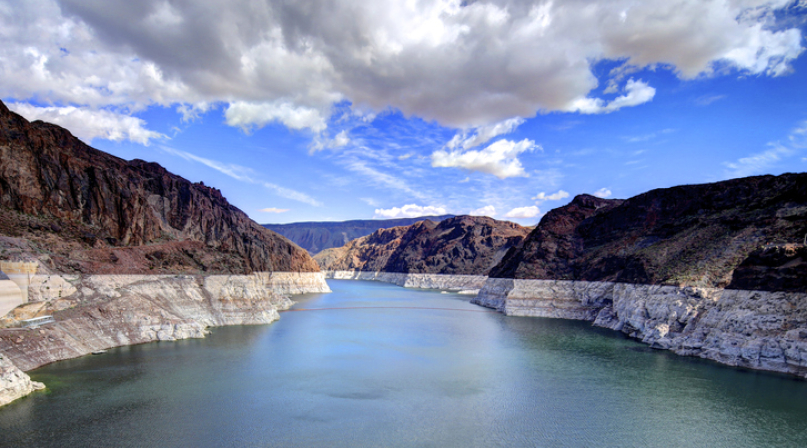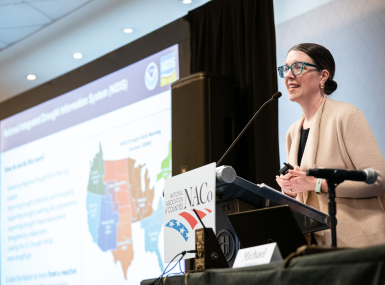Lower Basin States strike agreement to preserve water supply in Colorado River Basin
Author

Owen Hart
Upcoming Events
Related News

Key Takeaways
On May 22, the state governments of Arizona, California and Nevada, in conjunction with the Biden Administration, announced a breakthrough deal that will protect the Colorado River’s water supply through 2026.
Under the agreement, the three Lower Basin states will voluntarily conserve about 3 million acre-feet of water by 2026, roughly 13 percent of total water use in the Lower Colorado. An acre-foot is about 326,000 gallons – a rough estimate of what is required to cover an acre of land with a foot of water. As the largest single user, California will shoulder the heaviest share of cuts, corresponding to roughly 1.6 million acre-feet in reductions. Arizona and Nevada will equally share the remaining 1.4 million acre-feet in cuts. In exchange for reductions in water use, the federal government will contribute $1.2 billion in compensation to local irrigation districts, communities and tribes in the Lower Basin.
The Colorado River supplies drinking water to over 40 million county residents across seven western states. The river, and the hydroelectric and water storage facilities it supports, serves as a lynchpin for much of the western United States’ agricultural and energy sectors, irrigating 5.5 million acres of highly productive farmland and supplying power to millions in communities across the west. Usage of the Colorado’s water supply is governed by a complex network of treaties collectively known as the ‘Law of the River.’ The cornerstone of the agreement is the Colorado River Compact of 1922, which established the current model of apportionment between the seven states in the Colorado Basin and the federal government.
The Administration’s push to renegotiate the terms of the Colorado River Compact is motivated by historically low water levels in Lake Powell and Lake Mead, the nation’s two largest reservoirs. Both bodies rely on inflow from the river to sustain their water supply, which has been imperiled by long-term drought and low runoff in the Colorado River Basin. If current trends continue, water levels at Lake Powell could drop below hydropower turbines on the reservoir as early as November 2023, triggering a critical water shortage and energy crisis across the West. Record precipitation and snowpack in the basin over the previous winter have somewhat mitigated the immediate pressures of drought and low runoff among basin states, opening the door for a new agreement to conserve the Colorado’s water supply.
The new agreement is just the latest action following a series of major federal investments in water conservation efforts within the Colorado River Basin. In October 2022, DOI distributed $4 billion in funding through the Lower Colorado Conservation and Efficiency Program to water conservation projects aiming to mitigate the impact of drought along the river.
Counties believe that land management policy should prioritize, protect, and uphold watershed health and water yield. NACo urges that federal programs addressing drought mitigation should provide for long-range solutions to minimize the effects of future droughts and disasters as well as the economic revitalization of communities that rely on threatened water resources. In turn, before any decision is made that would impact federal water resources, a full review of all the relevant scientific and socioeconomic implications of such actions should be made and coordinated with affected counties. NACo will continue to engage with federal partners and notify members of any future developments.
Related News

NOAA outlines help for counties navigating drought’s growing risks
In April, the National Integrated Drought Information System will launch the Mid-Atlantic Drought Early Warning System, which will help county officials allocate resources and attention to mitigate drought-related disasters.
Next step on PILT requires more outreach
Facing headwinds on making PILT funding permanent, county veteran Rep. Celeste Maloy (R-Utah) told county officials to reach out to any member of Congress who will listen.

Counties receive first Secure Rural Schools payments after program is reauthorized
On February 20, the U.S. Forest Service (USFS) announced that counties across the country will receive payments through the Secure Rural Schools (SRS) program for the first time in nearly two years. The release of payments will deliver critical relief to timber-dependent counties that rely on these funds to maintain essential services as they transition toward long-term fiscal stability.